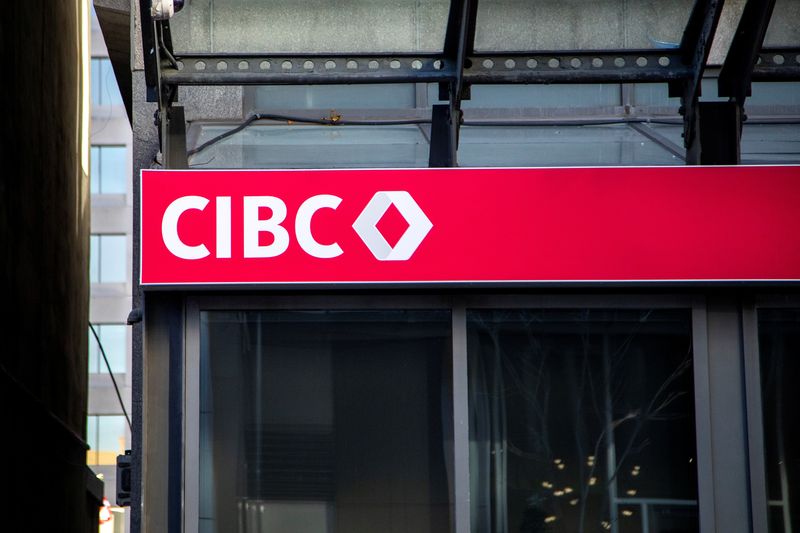By Mehnaz Yasmin and Niket Nishant
(Reuters) -Canadian Imperial Bank of Commerce (CIBC), Bank of Montreal and Toronto-Dominion Bank on Thursday joined their bigger peers in setting aside more money to cover potential loan defaults by inflation-hit customers.
But while TD Bank's big U.S. retail business helped it beat estimates, both CIBC and BMO fell short, according to Refinitiv IBES data.
TD Bank's shares were up nearly 2%, while CIBC fell nearly 6% and BMO dipped 0.5%.
A rising interest rate environment has helped banks' lending units, which can charge borrowers more on loans, but has also pushed banks to start bracing for increased odds of more loan defaults.
"We are seeing early signs of asset quality deterioration, but Canadian banks are still resilient," said Carl De Souza, senior vice president at DBRS Morningstar.
The Bank of Canada's historic tightening campaign has slowed the flow of deals, dimming the appeal of what was a lucrative revenue stream for banks last year.
Earnings from BMO's capital markets business plunged 33%, while profit at TD's wholesale banking, which houses its capital markets and investment banking businesses, plummeted 38%.
TD Bank's bigger U.S. presence boosted its loan growth and helped offset the hit from higher provisions for credit losses (PCLs). It recorded PCLs of C$617 million in the fourth quarter, compared with a recovery of C$123 million last year.
The bank posted a 5% rise in adjusted profit to C$3.07 billion. On the other hand, CIBC's adjusted profit fell 17% to C$1.31 billion, while BMO's earnings dropped 4% to C$2.14 billion.
With more than half of its total loans being in residential mortgages, CIBC set aside C$436 million in PCLs, up more than five-fold from last year.

BMO built C$226 million of PCLs. Last year, a loose monetary policy had allowed it to recover C$126 million from provisions.
($1 = 1.3417 Canadian dollars)